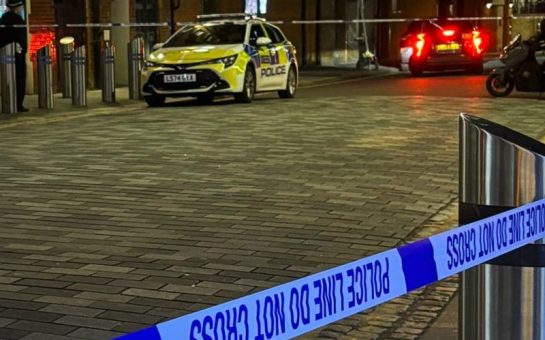I met John Griffiths, a former motor industry journalist for the Financial Times, a couple of days before his 80th birthday.
He was at home with his wife Peggy, their rescue chow Susie, and their yappy little grand-dog.
We sat in the library – a posh way of saying the front room – and talked about everything from gongoozlers*, to sleeping on the side of the runway in Australia.
Needless to say, Griffiths’ career has been nothing short of colourful and so much of it has come down to luck, be it the drop of a pin or the flip of a coin.
However, it all began in sixth form.
Griffiths had been raving about journalism to his Uncle who happened to know the editor of a local paper. Although it was still term-time, he met the editor on a Saturday and by the Monday evening, Griffiths was covering a council meeting. His headmaster gave him the green light to for it knowing he could always go back to school if it didn’t work out.
After a couple of years of working on the local news desk, Griffiths joined the Fleet Street News Agency which he describes as ‘the grotty end of the business’, advising me to stay away from death knocks at all costs.
And this is where luck came in, for the first time at least. One evening, he laid out a map of North America, got a pin, closed his eyes and jammed it down. It landed on Swift Current in Saskatchewan.
Unfortunately for Griffiths, being neither a miner nor a farmer, there was absolutely nothing with him there. Canada House suggested he go to Calgary, so with £200 in his pocket that’s exactly what he did.
Knowing very little about Canadian politics and its economy, Griffiths couldn’t get a job at either of the daily papers. As his funds were quickly dwindling, he got chatting to somebody at a bridal shower and landed himself a job in PR.
After a few months of booking plane tickets, which Griffiths says ‘will teach you what a bunch of b******s journalists are’, he started doing a couple of hours on the news desk in the evenings and eventually joined the Calgary Herald as night editor.
At the same time, Griffiths was also getting very good at motor racing, and was considering calling time on the papers when he got offered a job as news editor for The Times of Zambia.
Unsure of what to do, John and Peggy headed downtown, got absolutely rat-arsed and tossed a coin: heads for Silverstone and tails for Zambia.
It was heads, so they headed back to the UK via the Trans Canada rally, where Griffiths lost his suitcase.
Arriving back in London with no suit and no degree, Griffiths rocked up to the Financial Times which at the time was full of Oxbridge graduates, and they gave him a chance.
He worked his way up to European editor and eventually deputy foreign news editor which was ‘really interesting and worthwhile work’.
He was racing every weekend and every now and then, when the motoring correspondent couldn’t do something, Griffiths would fill in for them.
Griffiths explained how the motoring industry is much more interesting than just driving cars, and it’s all over the world, which meant he eventually became a global motor industry writer
Griffiths said: “You have to remind yourself that you are what you do and when you are not doing it anymore, you need to accept it and step back.
“In the meantime, I had an absolutely dream existence and the two great loves of my life, writing and journalism, went hand in hand racing and rallying cars all over the world.”
When he wasn’t writing, Griffiths was partaking in international rallies such as the London to Sydney marathon which involved 12,000 miles of driving, or getting the World Land Speed Record in the black rock desert which took almost eight years.
When they finally got it, the first words muttered were “thank f**k for that” and I’m sure the same can be said about Griffith’s whole career.
*gongoozlers are people who enjoy watching activity on UK canals





